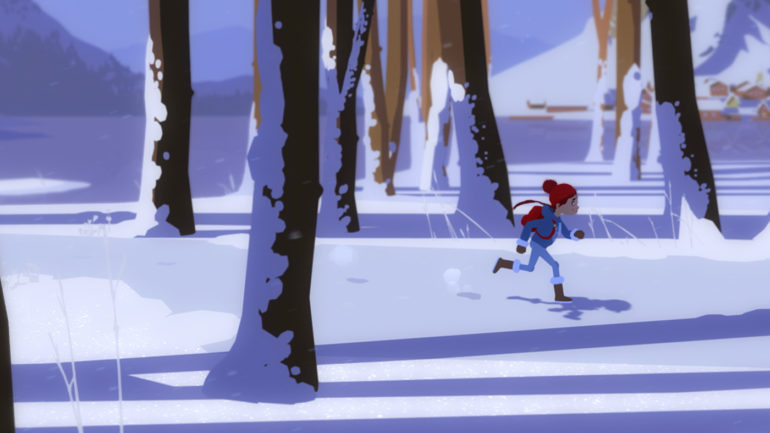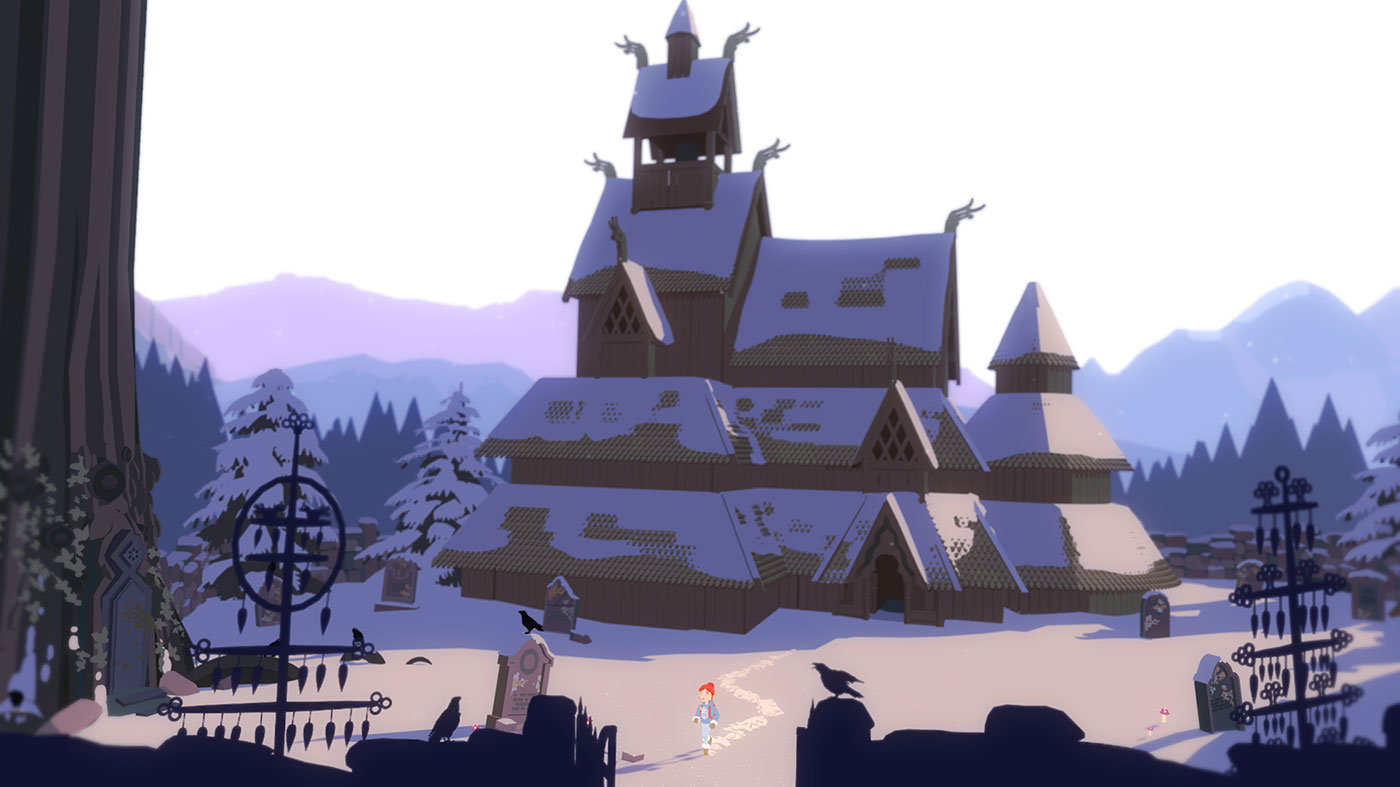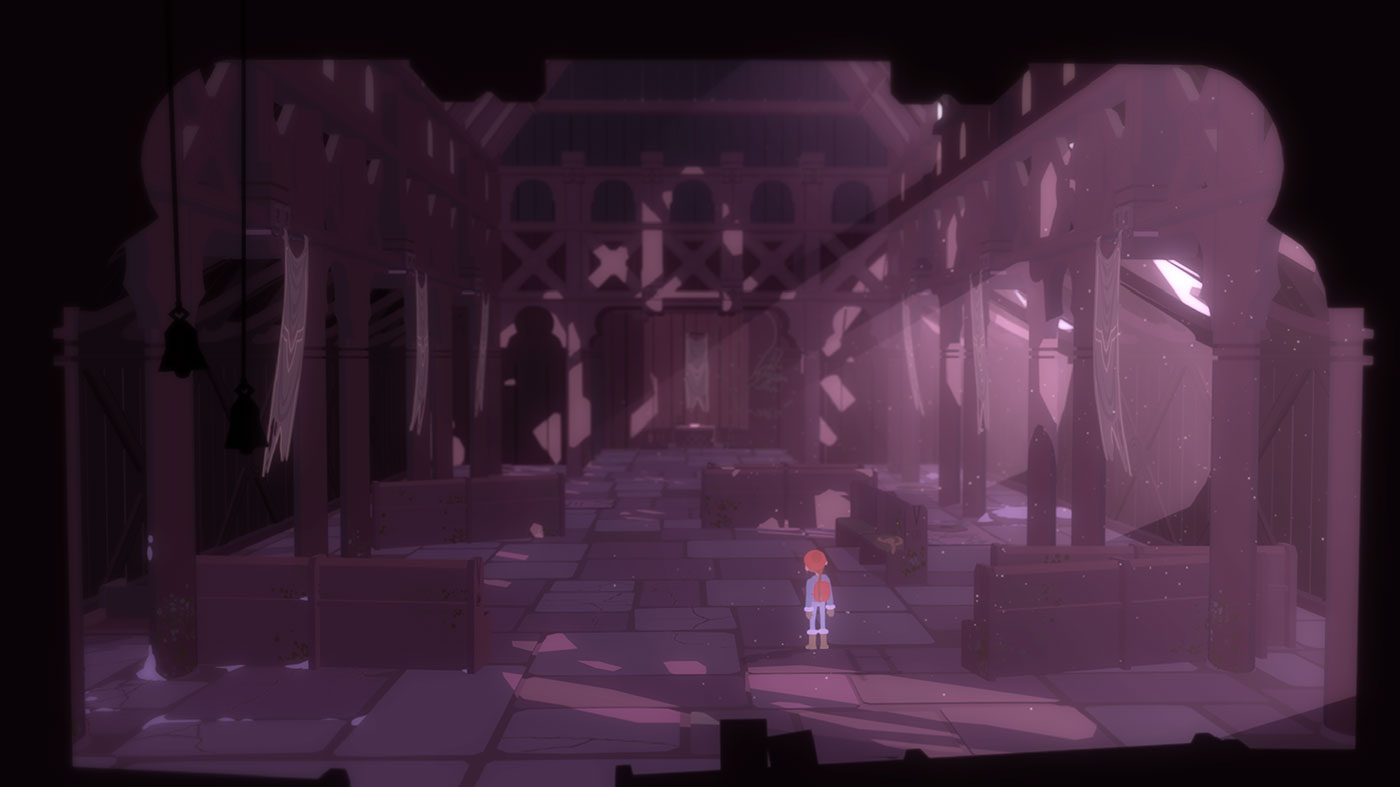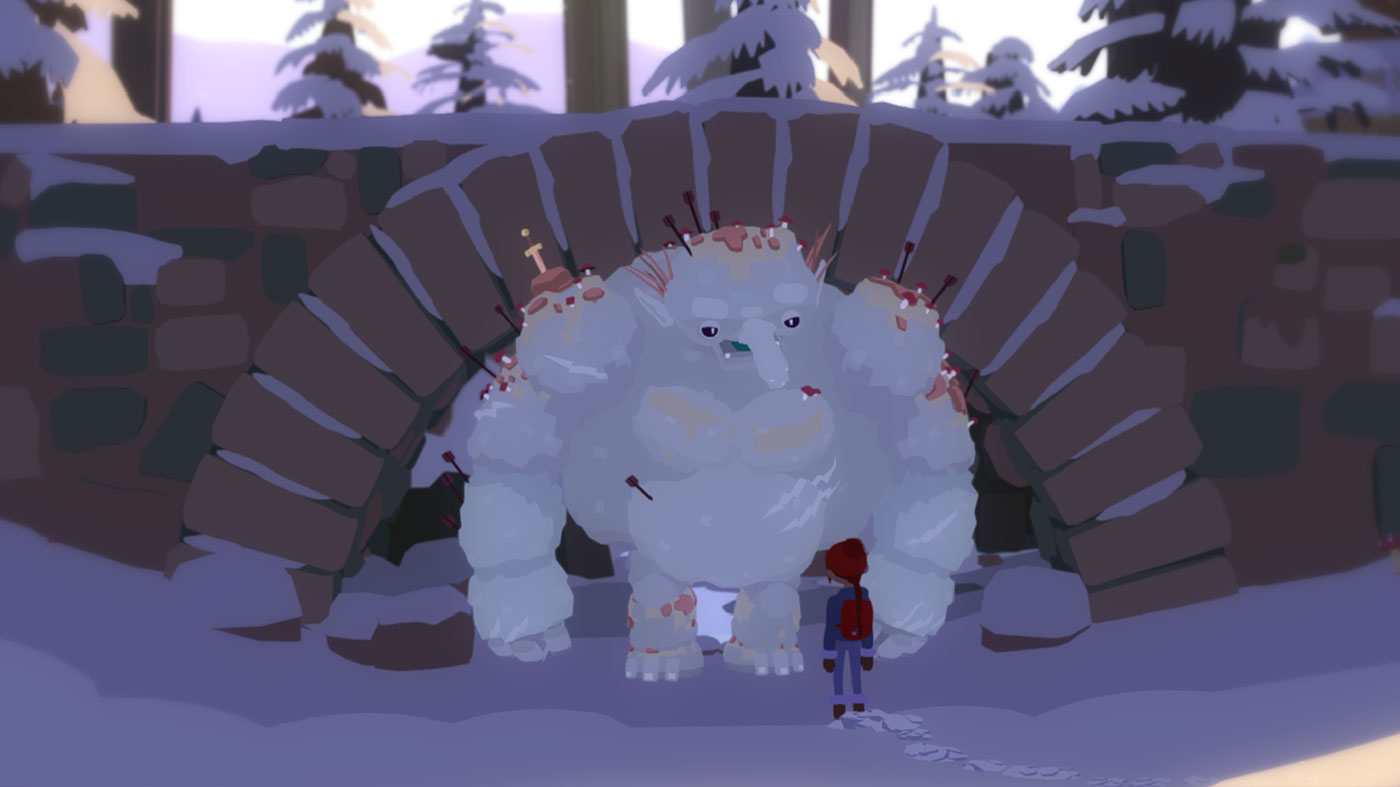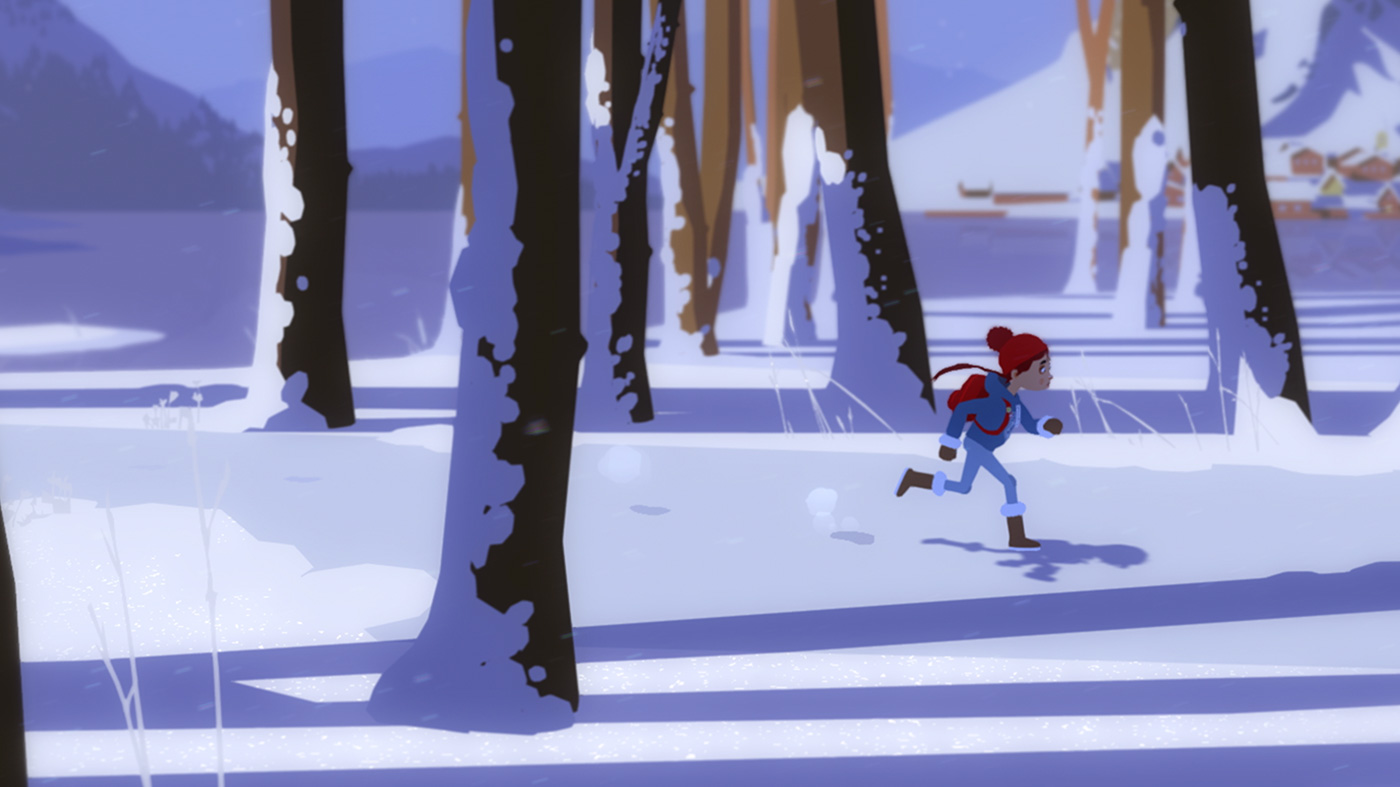Since its over-saturation throughout the last and current console generations, the adventure genre hasn’t seen much in the way of new titles recently, let alone inventive, and original IP within its relatively small bubble of influence. Röki is a gorgeous adventure game developed by Polygon Treehouse. Inspired by Scandinavian folklore and the mythology surrounding it, Röki seeks to breathe new life into the genre in a few different ways. I’ve come away from my time with it in awe of what this title has been able to achieve, searing itself into my memory as one of the best games in the genre, and one of my favourite gaming experiences of the year.
Röki follows a young girl named Tove, who lives in the countryside with her grief-stricken father Henrik, and younger brother, Lars. After a mythical monster attacks their home in the night, Tove is forced to journey through the forest surrounding her home in search of her family, encountering all kinds of mythical beasts in the process. I won’t say anything more to avoid spoilers, because Röki is because experienced as blind as possible, and part of what makes the game so special is its characters and world.
There’s a stark sense of place and each environment you’ll visit is absolutely dripping with atmosphere. There are mythical beasts protecting the woods, and Trolls that roam the lands. There’s a real sense of the forest being lived in before Tove’s journey, providing an almost post-apocalyptic feel. The lack of interaction with other beings is precisely what makes the rare ones you do experience all the more interesting. It’s like a combination of Hollow Knight and Ori and the Blind Forest, resulting in a world that’s as mysterious as it is terrifying, but I think you’ll find that it constantly pokes at your curiosity while introducing new and interesting characters.
As you explore, Tove will fill out her journal which not only keeps tabs on current events and characters, but further expands the world through the lense of Tove and how she views things. It’s fascinating to view her side of things as she’s experiencing this whole world alongside the player. Tove’s journal also makes it easy to understand where you are in the world, and where you might want to head next to progress the story. Additionally, you can find hidden collectibles around the world which Tove will put in her journal, further deepening the atmosphere and sense of place.
Röki plays like your standard point and click adventure, with a few added quality of life improvements that make the experience a bit smoother. As you explore, you’ll find items you can combine and use to solve puzzles in the world, whether that be providing an NPC with an item they’re looking for, or a dagger to cut away some vines to access a new area. It’s a tried and true gameplay formula that largely hinges on the quality of its puzzles and world, but Röki doesn’t struggle with either of those things. While some of the solutions can feel a little bit too devious, the vast majority of puzzles are fun to solve, and leave you feeling smart when you piece it all together. They steadily get more difficult as the game progresses, with the third act in particular, switching things up and keeping the pacing fresh. The non-linear nature of its gameplay also means there’s no one way to progress, and you’ll often wind up finding solutions for other puzzles as you tackle the one that’s presented to you.
While Röki doesn’t do much new within its core gameplay loop, it’s the small things that make it a much more enjoyable experience than the usually janky point and click affair. For starters, pressing the F button will highlight every interactable object in the room, helping you out if you find yourself stuck, and eliminating a lot of the frustration that comes with missing an item or two that you might need to backtrack for. If you do manage to miss an item, though, the largest and most non-linear act of the game is all interconnected with the Rootways, acting as fast travel between different points of the map.
It makes getting from point A to point B much easier and cuts out the tedium of walking through the same environments again if you aren’t feeling up to it. Additionally, dragging and dropping items to combine and use them feels intuitive, and cuts out a lot of arduous inventory management when you have a lot of items on you. These are all minor aspects of the game in the grand scheme of things, but they all come together to dramatically enhance pacing, and the user interface systems.
If there’s one thing that stuck me about Röki before I started playing it, it would definitely be its visuals and presentation. There’s a staggering amount of detail in the gorgeous 3D backgrounds, filled with colours that pop against the contrast of the white snow. Every environment is a treat to look at, and the overall aesthetic of the title is awe-inspiring in a way that compliments its mystery and world-building. I also never experienced any bugs, hiccups, or technical faults, and I felt that the experience was extremely polished overall. Although much of this is a given, in a game like Röki where atmosphere and world-building is paramount, these things can go a long way in maintaining that atmosphere and sense of place.


